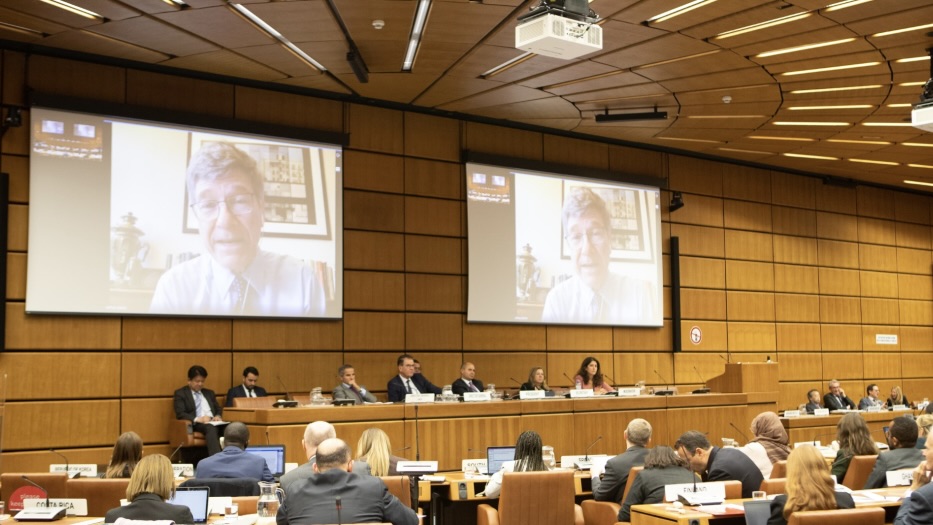

Industrial policy for the energy transition
21 November 2022

VIENNA, 21 November 2022 – During the fiftieth session of the United Nations Industrial Development Organization’s Industrial Development Board (IDB), guest speakers addressed representatives of Member States at a special event, Industrial Policy for the Energy Transition.
The session focused on two key questions: First, how can industrial policy be used as a tool to maximize the gains from the energy transition and minimize the risks? And second, what sorts of industrial policy cooperation and coordination across countries are necessary to achieve global targets?
In his introductory remarks, UNIDO Director General, Gerd Müller, who had just returned from the COP27 in Sharm El-Sheikh, declared that a just and clean energy transition is an imperative for addressing climate change. He also stressed the need to decouple economic growth from greenhouse gas emissions, indicating that to achieve this “we need to use all relevant technologies”.
Müller said that a massive investment in renewable energy is required to drive sustainable industrial development and highlighted the potential of green hydrogen as the future fuel. While countries in Africa, Latin America and Asia have great opportunities to develop green hydrogen production, UNIDO’s key message is “value creation must be kept in the producing countries for investment in industrialization”. He added, “We must create green hydrogen trade corridors and fair value chains between the developing market economies and the industrialized countries.”
Rafael Grossi, Director General of the International Atomic Energy Agency (IAEA), described the interlinkages between energy planning and industrial policy, with a focus on the role of nuclear energy and what it means for international development. He said, “We need to create the necessary tools in action so that the [energy] transition is virtuous. Nuclear energy accounts for twenty-five percent of the clean energy produced today worldwide.” He noted the importance of capacity building and instruments to help countries prepare for various technologies.
Christina Duarte, Special Adviser on Africa to the United Nations Secretary-General, highlighted that energy access is essential to accelerate economic transformation and industrialization in Africa. She emphasized opportunities for the development of continent-wide value chains, particularly in view of the critical mineral assets that the continent sits on and that are essential for the energy transition. She added that “it would be impossible for Africa to compete in international markets without affordable and accessible energy”.
The keynote speaker, Jeffrey D. Sachs, Director, Centre for Sustainable Development at Columbia University, assessed the interplay of industrial policy and energy systems in time of transition. He argued that roadmaps are the most important tool that countries should have, adding that currently there is a lack of clarity on how countries plan to reach net zero. Sachs stressed that “governments need to plan with a 25-year horizon and they need to plan with their neighbours”.
In the subsequent discussion, ambassadorial-level officials from the regional groups, including Europe, Latin America, Africa and Asia, contributed their ideas about the major challenges and opportunities from the energy transition for industrial development.
Rana Ghoneim, UNIDO’s chief of the Energy Systems and Industrial Decarbonization Unit, who moderated the discussion, concluded by emphasizing the need for integrated policymaking to tackle our climate and development challenges. She also called on Member States to share lessons learned and best practices from their own transition.


